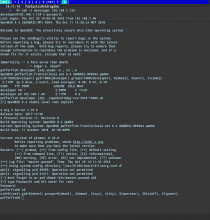Stuxnet 2.0? Iran claims Israel launched new cyber attacks
Last week, Iran’s chief of civil defense claimed that the Iranian government had fought off Israeli attempts to infect computer systems with what he described as a new version of Stuxnet—the malware reportedly developed jointly by the US and Israel that targeted Iran’s uranium-enrichment program. Gholamreza Jalali, chief of the National Passive Defense Organization (NPDO), told Iran's IRNA news service, “Recently, we discovered a new generation of Stuxnet which consisted of several parts... and was trying to enter our systems.”












































































